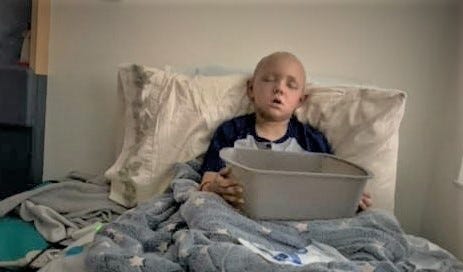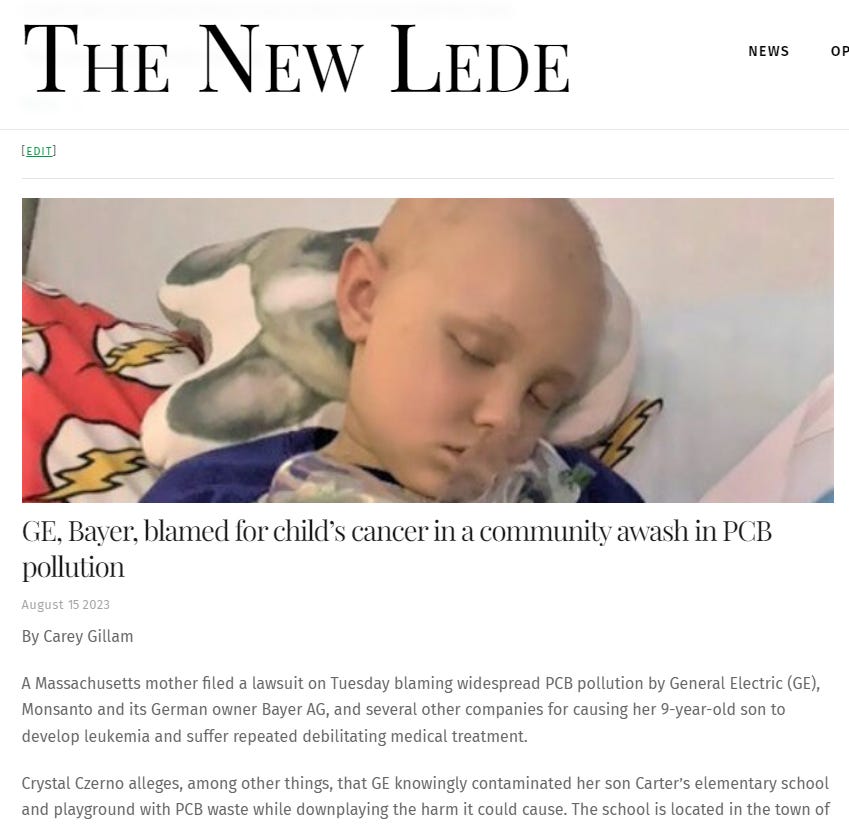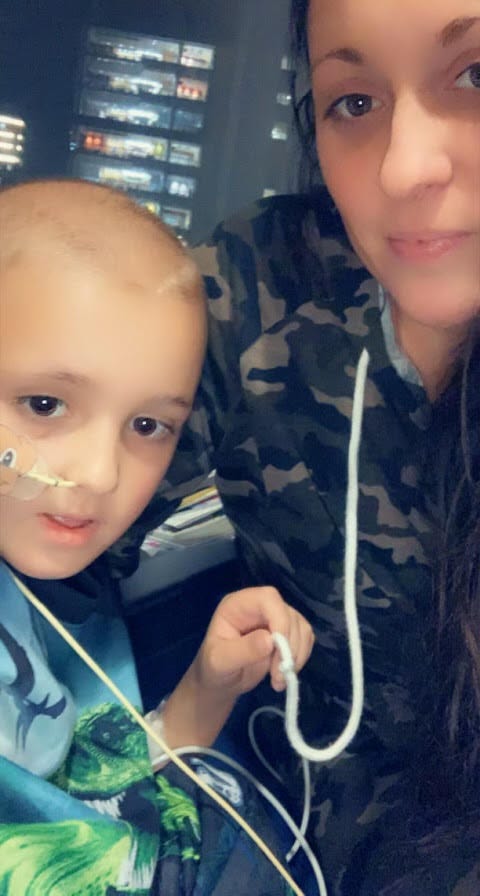A child's suffering; a mother's sorrow
Another example of how companies and chemicals destroy lives
Sometimes, for a journalist, the stories of a stranger’s struggles feel all too personal, almost too painful to bear. One story hit my heart that way this week.
Carter LaCasse is only 9 years old, but in his short life he has already endured more suffering than most of us may ever experience. Diagnosed with acute leukemia roughly two years ago, Carter has undergone multiple rounds of chemotherapy as well as full-body radiation and multiple stem cell transplants and bone marrow biopsies, according to a lawsuit filed this week by his mother. Another painful bone marrow biopsy is scheduled for next week, she told me.
Carter has the misfortune to live in Pittsfield, Mass., a community like so many others around the United States that is contaminated with the toxic waste generated by large companies that appear more interested in profits than in protecting the public.
The lawsuit filed by Carter’s mother, Crystal Czerno, accuses General Electric (GE), Monsanto and its German owner Bayer AG, and other related companies of knowingly contaminated her son’s elementary school and playground with cancer-causing polychlorinated biphenyls (better known as PCBs), while downplaying the harm PCBs cause.
Researchers have found that PCB exposure is associated with a 2-fold increase in risk for acute lymphocytic leukemia in children, among other illnesses.
The United States banned PCBs in 1979 but PCB pollution remains pervasive because the chemicals do not easily break down, making eradication difficult. The Environmental Protection Agency (EPA) has called them “a significant hazard to human health and the environment.”
There is no dispute that Carter’s community is awash in PCB pollution. The EPA has long known about the presence of PCBs at the school site, which is near a former GE facility where PCBs were used, and in the Housatonic River. The EPA is pushing a sweeping remediation plan that has townspeople up in arms because they fear it will simply relocate much of the toxic waste from the river to a landfill in town, creating new avenues for exposures.
But behind it all is a company I’ve written about before - a company called Monsanto.
Monsanto, purchased by Bayer in 2018, manufactured PCBs from the 1930s to the late 1970s for use in coolants and lubricators in electrical equipment. Internal corporate records revealed through prior litigation show the company continued to sell PCBs for years while knowing they posed health risks and publicly downplaying the risks. The new lawsuit draws on those documents, citing several from the 1950s and 60s that speak of internal corporate concerns about PCB toxicity, potential legal liability, and the “universal presence as residues in the environment.”
Carter’s lawsuit is only one amid thousands that have been filed over the years against Monsanto over PCB pollution. The company has paid out hundreds of millions of dollars so far, but still disputes any real liability. Communities around the US have been working to eradicate widespread contamination for years but the danger persists.
So we have stories like Carter’s. A story of an innocent young life left to bear the cost of corporate wrong-doing. Carter’s mother described to me what it feels like to spend every day not knowing how long her child will live.
Doctors have told her that even if Carter is eventually declared cancer-free, his life expectancy is significantly shortened due to all the treatments he has undergone.
“Every day I look at Carter and I wonder if the cancer is going to take him away from me,” she said. “I have had to envision what saying goodbye to him would look like on so many occasions. What would I say? Would I cry or be strong until he died and then lose it? Would he know I was there holding him?
“Sometimes when we are lying in bed at night I record our conversations and dread the day they are all I have left.”








Women know.
Heartbreaking... thanks for writing about this.